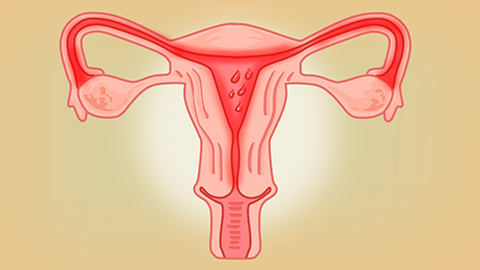What causes uterine polyps?
Under normal circumstances, uterine polyps may be caused by factors such as excessive estrogen levels, endometrial degeneration due to aging, endometritis, dysfunctional uterine bleeding, and polycystic ovary syndrome. It is recommended to seek timely medical advice, identify the underlying cause, and receive symptomatic treatment under a doctor's guidance. Detailed analysis is as follows:

1. Excess Estrogen Levels: Long-term consumption of foods or medications containing estrogen can cause persistent elevation of estrogen levels in the body, stimulating excessive endometrial proliferation and the formation of polyps. This is commonly seen in women of reproductive age. Reduce intake of estrogen-containing foods such as royal jelly and snow frog, and avoid blindly taking estrogen-containing supplements.
2. Endometrial Degeneration Due to Aging: With increasing age, ovarian function declines, hormonal regulation becomes imbalanced, and the endometrium's ability to repair diminishes, making localized proliferation and polyp formation more likely. This is commonly seen in women over 40 years old. Annual gynecological examinations, maintaining a regular sleep schedule, and engaging in appropriate physical exercise to enhance physical health are recommended.
3. Endometritis: Chronic inflammation of the endometrium caused by infections such as bacteria or mycoplasma can lead to abnormal endometrial proliferation and polyp formation due to inflammatory stimulation, often accompanied by lower abdominal pain and increased vaginal discharge. Patients should follow medical advice to take anti-infective medications such as cefuroxime axetil tablets, levofloxacin hydrochloride capsules, and metronidazole tablets.
4. Dysfunctional Uterine Bleeding: Endocrine disorders leading to anovulation cause the endometrium to be exposed to unopposed estrogen stimulation, increasing the risk of endometrial proliferation and polyp formation, often accompanied by prolonged menstrual periods and abnormal menstrual flow. Patients may follow medical advice to use medications such as dydrogesterone tablets, ethinyl estradiol cyproterone acetate tablets, and progesterone capsules to regulate the menstrual cycle.
5. Polycystic Ovary Syndrome: Hormonal imbalance leads to elevated androgen levels and ovulatory dysfunction. Continuous estrogen stimulation of the endometrium can lead to polyp formation, often accompanied by hirsutism and oligomenorrhea. Patients should follow medical advice to use medications such as drospirenone ethinyl estradiol tablets, ethinyl estradiol cyproterone acetate tablets, and spironolactone tablets to regulate hormones and improve ovulation.
In daily life, maintain a light diet, reduce intake of spicy and irritating foods, avoid long-term sleep deprivation and excessive mental stress. Pay attention to menstrual hygiene, change sanitary products frequently, undergo regular gynecological examinations, and promptly detect and manage endometrial abnormalities to maintain uterine health.




